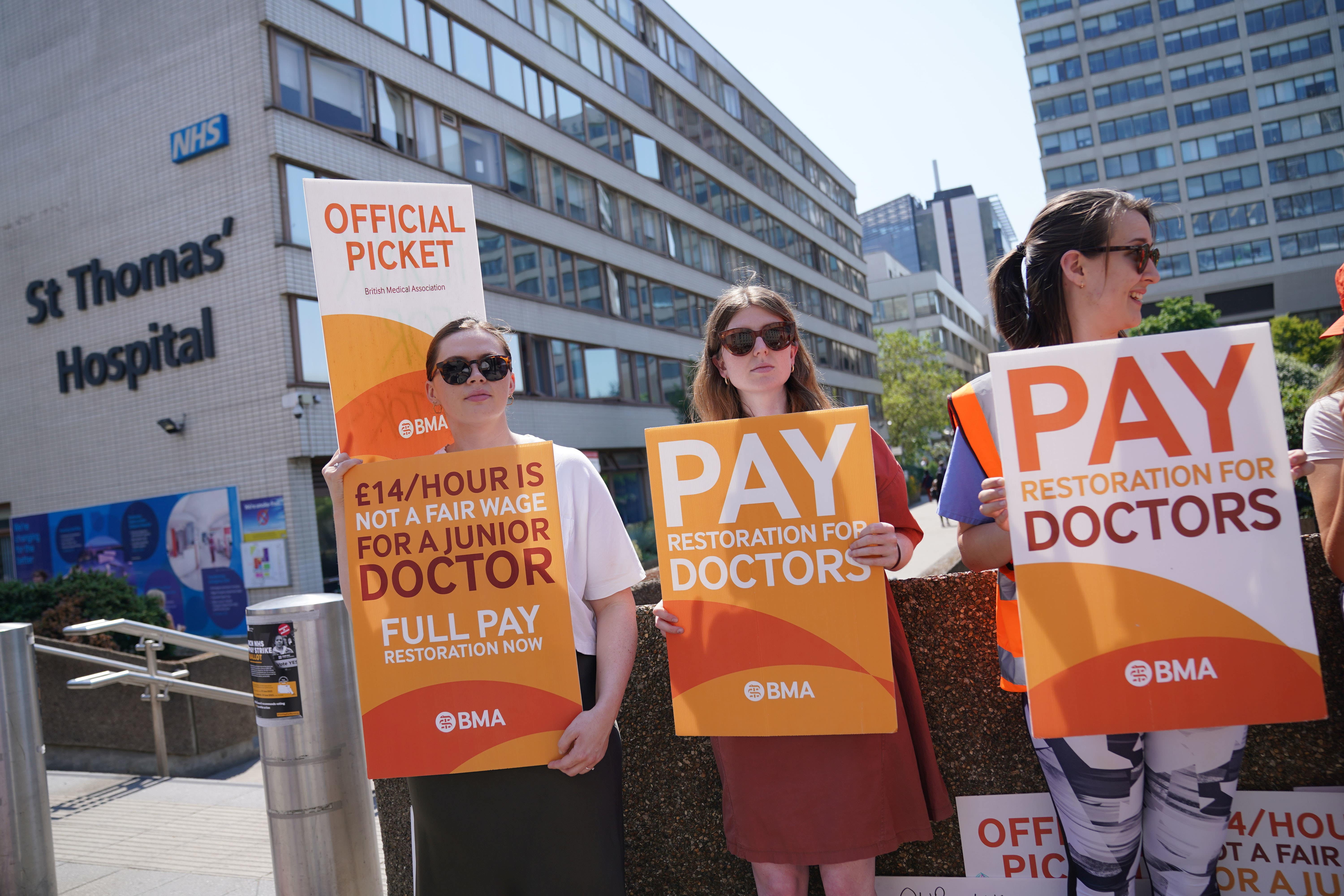Labour does not rule out rejecting public sector pay advice from review bodies
Rishi Sunak has expressed concern that unaffordable pay increases could trigger a ‘wage-price spiral’ amid stubbornly high inflation.

Shadow chancellor Rachel Reeves has not ruled out blocking public sector pay rises, saying Labour would negotiate a “fair and affordable” deal with workers.
It comes amid reports that Prime Minister Rishi Sunak could overrule recommendations by the independent pay review bodies amid concerns higher wages for teachers, police and junior doctors could fuel already rampant inflation.
Unions criticised the Government for “playing politics with working people’s incomes” after the Times reported ministers are likely to take the rare step of rejecting some.
I've also always been very clear that Labour's fiscal rules are absolutely non-negotiable
Asked whether a Labour government would consider blocking pay increases too, Ms Reeves said she understands why the pay review bodies are recommending 6% pay rises, but noted any wage settlements would have to be in line with her party’s fiscal rule – that debt must be falling as a share of national income after five years.
She told the PA news agency: “We’re very concerned about what’s happening in terms of public services.
“You’ve got lots of people in those professions leaving because of the terms and conditions and because of the workload, and the Government needs to try and support people through the cost-of-living crisis.
“I understand why public sector workers, and why the pay review body is recommending these wages.
“Of course I would, as chancellor, look at those and work with the different professions in the public sector to have a pay deal that is fair and affordable.”
Pressed on whether Labour would accept the pay review bodies’ advice, which could reportedly stretch to 6.5% for teachers, Ms Reeves said: “No, we haven’t even seen the recommendations of the pay review bodies, so I’m not going to preempt that.
“And I’ve also always been very clear that Labour’s fiscal rules are absolutely non-negotiable.
“But unlike the Conservatives, myself and my colleagues would sit down with workers in the NHS, in our schools and negotiate, whereas this Government refuses to do that.
“And as a result, we see the disruption in our hospitals and schools.”
She said it was “another example of the Tories trying to blame others” for the dire economic situation, adding that “it’s not nurses and teachers that have caused inflation to rise so much”.
The Treasury did not deny the Times’s report, saying not all recommendations have been received and decisions on public sector pay have therefore not yet been taken.
Mr Sunak has expressed concern that unaffordable public sector pay hikes could trigger a “wage-price spiral”.
He told the Times chief executive summit on Thursday that “wage settlements need to be fair, but they need to be affordable and responsible too”.
It came after the Bank of England raised interest rates to 5% in a shock move designed to reduce inflation, which remained persistently high at 8.7% in May.
Playing politics with working people’s incomes is not only deeply cynical but it puts all of our futures at stake
Pay review body recommendations are not legally binding on the Government and, although they are typically accepted, ministers can generally choose to reject or partially ignore the advice.
But this would be a controversial move, after ministers defended last year’s below-inflation pay rises by saying they had followed the bodies’ advice.
It could further inflame ongoing disputes with unions and lead to more strike action.
TUC general secretary Paul Nowak said: “UK inflation is not being driven by public servants. Their household budgets are under such pressure that we’ve got nurses and teachers using food banks.
“Playing politics with working people’s incomes is not only deeply cynical but it puts all of our futures at stake.
“Instead of blaming workers who can’t afford to put food on the table or petrol in their cars to get to work, ministers should focus on a credible plan for sustainable growth and rising living standards.”
Unison’s assistant general secretary Jon Richards said: “In the last pay round, the Government spent months hiding behind the NHS pay review body (PRB).
“Ridiculous claims ministers couldn’t intervene with the PRB led to strikes and much needless disruption to patients and services.
“For the Prime Minister to be pondering blocking the other pay review bodies now is utterly farcical.”
Bookmark popover
Removed from bookmarks